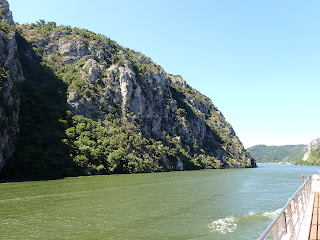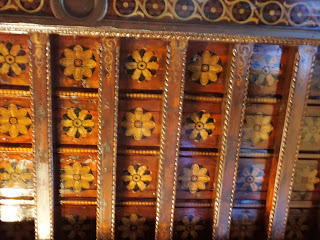Today our ship docked in Croatia which has made a
remarkable recovery from the brutal civil Croatian War of Independence from 1991 to 1995, commonly called the Homeland War In Croatia. It has been bizarre to visit places that were often in the news in the UK around thirty years ago.
Our tour started with a drive through the streets of
Osijek which is the cultural heart of Croatia’s Slavonia region. This region is the breadbasket of Croatia
with many crops including sunflowers and corn. I was surprised to hear that canola was also grown here as I thought that this was only grown in North America.

We then went up to The Vineyard of the Hill on the hillside overlooking overlooking the town of Karanac.


After visiting the vineyards we drove down into Karanac to
visit the Baranjska Kuća museum which holds a number of historic farm buildings
of the area. A number of these buildings
could be entered and we were
told about life and crafts in times gone by.
A very convivial lunch followed at the Baranjska Kuća family restaurant adjoining the museum.
After lunch we went to Vukovar which has been rebuilt after the bitter Homeland War. We visited the Vukovar City Museum housed in the Baroque Eltz Manor which is an 18th century palace.

Outside the Eltz Manor on the banks of the river was the old water tower. This was shot at very many times during the Homeland War.

Our last stop was at the more modern Vukovar Water Tower which is a symbol of Croatian unity that was established to manage the memorial site of the Homeland War. It has also become a cultural and historical monument of modern Croatian national identity by preserving the memory of the sacrifice made during this war.





























































